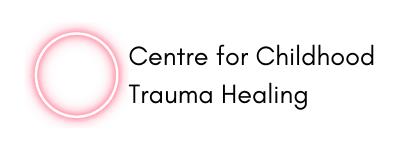Sharing aloud with someone what you’ve been through is sometimes a scarier thought than just continuing to live in silence with what you’ve been through, and the challenging after effects of that history. I want to share with you the most common reasons I hear from people, both in my trauma practice and the wider world, as to why people are scared to share. See if you relate to any of these:
1. Fear of betraying the people that hurt you. Even if you know in your mind that what you went through was not okay, there can be a fear that by you sharing what happened, that you’re somehow calling those people monsters, or that you’ll make life harder for their families or wider community.
2. Fear of not being believed. In a society that frequently victim blames or judges public or celebrity abusive situations so casually, it can make us believe that we’re likely to be doubted, as well, and that sometimes can feel even more triggering than what we’re already living with.
3. Fear of the situation getting out of control. It’s bad enough that we went through so many things that were out of our control, or without our consent. The fear that if we share with someone what happened and that somehow the decision of what to do, or what not to do, being taken out of our hands, can feel like a scenario that’s just not worth risking.
4. Fear of our story being freakishly unusual. I hear from clients constantly that they consider what they went through to be shamefully unusual and worry that they’re burdening me with their truth, and worried that their history is so bad, that it might be too much for another person to hold space for.
5. Fear of what will come out once you’ve lifted the lid. When we’ve repressed things for a long time, we have often become so out-of-touch with what’s really in there, that the thought of what could be in there feels scary and insurmountable. We may even worry that things will fall apart if we decide to address it.
6. Fear of being judged, for your life choices, or lack of taking action, or that you feel you didn’t do everything you could to get away. Some people can feel that they were complicit in their own harm, even if they know logically that they weren’t at fault. Sometimes we’ve been stuck in cycles of picking the wrong people, or staying with them for a long time, and we can judge ourselves very harshly for that.
The good news:
1. You are not betraying anyone by telling the truth. Those people are responsible for their own actions. You not getting the help you need only harms you; in a confidential setting, the only person hearing you out is there to support you, and this will not impact the people you’re talking about, but it will impact you by giving you the chance to actually be supported and not suffer alone. A good practitioner will listen and support you to come to your own conclusions about things, and will not label or judge the people you’re talking about (although I have been known to recommend certain books from time to time that may inform you about the dynamic you’re discussing).
2. The types of things you went through might be very hard to prove in a legal setting, but in my line of work, the mark left on you is as clear as day. And that’s good enough for me. I don’t require anyone to plead their case, to produce a diagnosis for their own mental health, or to have won a court case. I believe you because I was you, and I know exactly how it feels and what it does to you long-term. You are believed.
3. Generally in my practice, there is no need to worry about a situation getting out of control. I do not report anything unless someone is in immediate danger, or unless you have decided to make a report yourself and I am asked for a copy of your notes (which you have to consent to in the first place). Within my practice, it’s important that you feel safe and in control of the situation. After everything you’ve been through, you being in control is part of the healing.
4. Your story, whilst I treat it with complete respect, is unlikely to be anything I’m not already familiar with. Because of our society’s history with sweeping things under the carpet, and shaming survivors for speaking openly about what they’ve been through, it can leave you with the false belief that you’re one of the only people this has ever happened to. I’m sorry if life and other people have left you feeling isolated and ashamed. You are absolutely not on your own, and it’s certainly not something you should live with in silence forever.
5. Some people are afraid that lifting the lid will result in massive emotional dysregulation, the breakdown of relationships, disruption to earning an income, and a vast number of other things. It might even just be the fear of dealing with the emotions underneath. But the good news is that there is lots of stabilising work that happens before you get to the really challenging bits, by which point you will naturally feel ready. If you don’t feel ready, then you’re not. After everything you’ve been through, it’s important for the process to feel as relaxed as possible, and to take things gently.
6. I have heard so many survivors judge themselves so harshly for even the tiniest thing that, in their minds, could have contributed to the harm that was done for them. Even if there were any shred of truth in an action contributing to the situation you were in, it still does not justify what happened to you. Even if you argued with someone knowing it was going to invoke a reaction, you are still not responsible for someone doing harm to you. That is still their responsibility.
Ultimately, what I want you to know is that ‘airing your dirty laundry’ is a concept that has been used to silence victims for generations. The concept of airing your dirty laundry maintains the status quo; it means you feel you can never get help or share your truth, and the people who harmed you will never face the consequences of their actions. It also means that younger generations are finding themselves in the same kind of trouble, because we’re not learning and experiencing this stuff collectively; if all instances are suffered in silence, and never talked about, there’s nothing for our younger folks to latch onto before they enter the world of relationships and find themselves undereducated.
And so, I do not believe in the concept of airing your dirty laundry. It’s a complete nonsense. I would even go so far as to say that it’s not really your dirty laundry at all, but theirs. You were the object of their harm, but that doesn’t make you less than a human being. And you certainly never deserved it, let alone should have to live in silence about it for the rest of your precious life.
You may never decide to write about what you’ve been through as I have, you may never speak on a ridiculous number of podcasts as I have, you may choose to never even share what you’ve been through with people outside of a therapeutic setting, but sharing with even just one person can liberate you in a way I cannot put into words. Seeking out the right therapist until I found someone who could hear me, who understood because they’d been through the same, and the weightlessness I experienced once my shameful silence was shattered gave me my life back. And so many of my other clients have said similar.
If you’ve been holding back because of your fear, I want you to consider joy for a moment instead. What would it mean to you to be able to genuinely move forward and lay so much of your difficult history to rest? What if there was a guarantee of confidentiality, no judgement, being believed, and knowing that there was a space where your truth was not only accepted, but deeply respected? A space where you could realise that saying it outloud was not a betrayal of anyone, but rather a huge gesture of love for yourself?
I would love to help you. Check out the ‘book a call’ button below and let’s just have an informal chat about it? You deserve good things! And I want to make sure you can have a life that feels like it’s fully yours again.
Harris
Is it finally time for you to say goodbye to your relational trauma?
Have a conversation with me (via zoom) and let's explore your options. I'll have something to suit you, wherever you are right now.
Book a free 30-minute assessment with me on the button below.

